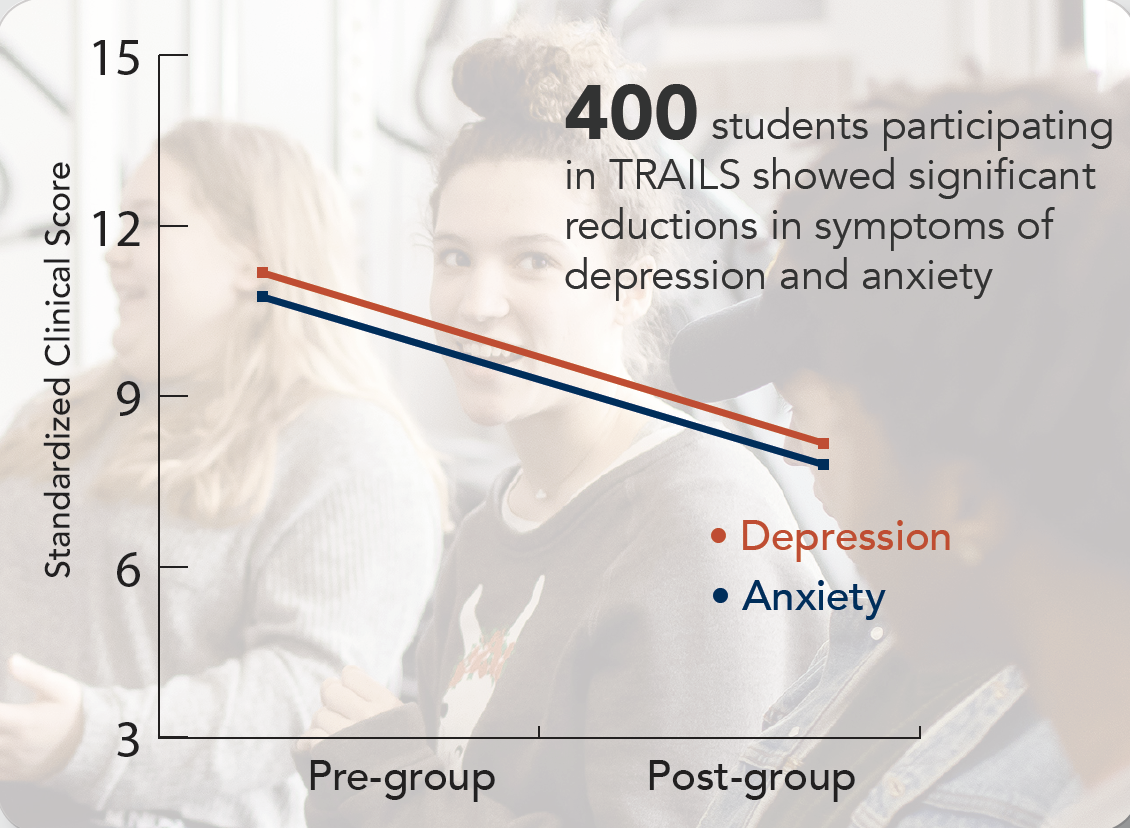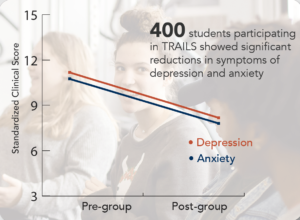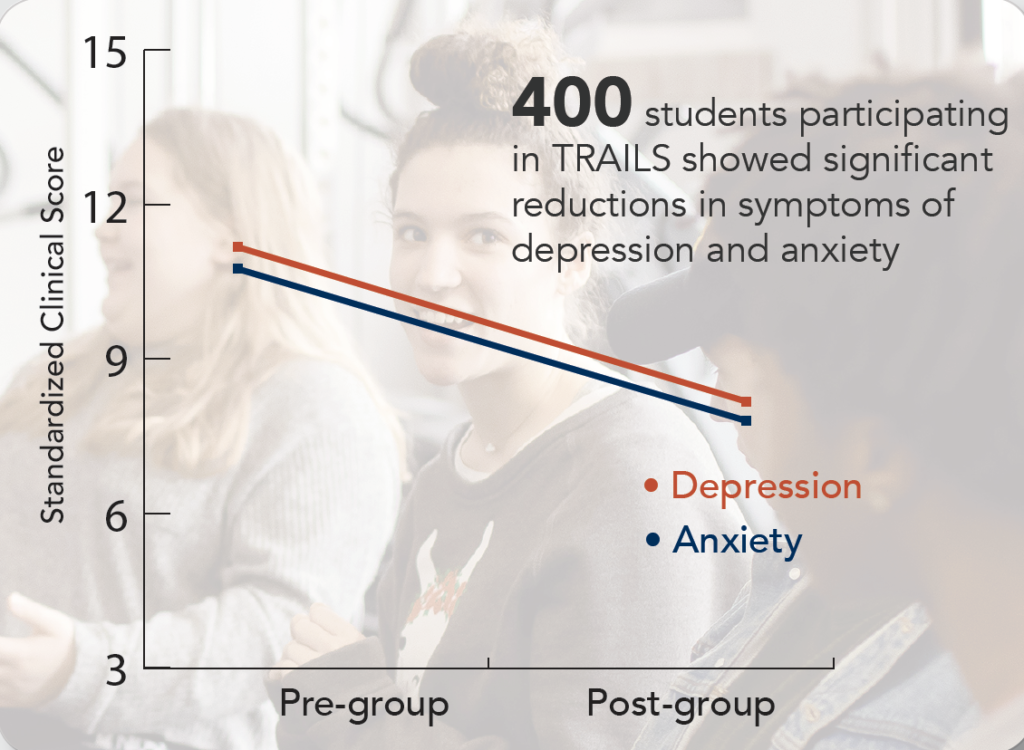Source: Michigan News


Detroit public school students will soon have access to new services to help them effectively manage symptoms of anxiety, depression, and post-traumatic stress.
Detroit Public Schools Community District has partnered with a University of Michigan program called TRAILS, or Transforming Research into Action to Improve the Lives of Students, to bring mental health resources to all 110 public schools reaching the city’s 50,000 students and 4,000 staff as part of a $3 million expansion over the next three years.
TRAILS began working with Ann Arbor Public Schools in 2013, and has trained more than 400 school mental health professionals in 64 counties, impacting an estimated 3,000 students across Michigan by decreasing their symptoms of depression and anxiety.
The program’s track record spoke to officials in the Detroit district, which identified student mental health as a key priority in its Blueprint 2020. It expects the partnership with TRAILS to help improve social and academic outcomes across all grade levels.
“Unfortunately, federal and state education funding does not take into account that our schools and their employees must overcome the daily socio-emotional challenges our children face every day. This means we cannot simply focus on teaching and learning,” said Detroit district Superintendent Nikolai Vitti. “This partnership and associated funding starts the process of building an integrated system of support and care for students where we properly apply real time screenings, intervention, and support on school campuses to our families and students.”
The program provides training to school staff on two evidence-based mental health approaches — cognitive behavioral therapy and mindfulness — and then pairs each school with a local mental health provider who has been trained as a TRAILS coach. School staff and their coaches then facilitate 10-session student skills groups, where students will learn effective coping strategies to manage symptoms and maintain wellness. Coaching ensures that staff can sustain their work with students long term.

Elizabeth Koschmann, TRAILS program director.
Elizabeth Koschmann, TRAILS program director, said that the work began last year with data collection from 4,000 Detroit district staff and more than 10,000 students. That data will be the basis of programming recommendations that her team will provide to the district this winter.
“The survey of the Detroit district went extraordinarily well, in large part because the district was an incredible partner, investing heavily in the process,” Koschmann said. “We are grateful to partner with the district to reach students affected by a wide range of stressors from academic pressure to far more complex hurdles, such as food and housing insecurity, and exposure to violence, abuse, or neglect.”
TRAILS and their colleagues at the U-M Youth Policy Lab will help the district implement and evaluate mental health programming spanning three levels of service: 1) universal education and stigma reduction, 2) early intervention, and 3) crisis response and risk management. Programming will roll out in roughly 30 schools a year through 2022.
Funding for the Detroit program expansion is supported by the Centers for Medicare and Medicaid Services through the Michigan Department of Health and Human Services, the Ethel and James Flinn Foundation, the Michigan Health Endowment Fund, the Prosper Road Foundation, and several other generous sponsors.
Joan Evans, director of the Prosper Road Foundation in Chicago, grew up in metro Detroit and her grandparents and parents grew up in Detroit (her parents attended Mumford). She supported TRAILS from its launch because it helps to build equity for school children throughout the state who lack adequate access to mental health tools.
“TRAILS has developed materials and a website to support all of their work, making it easy and accessible for school staff. In a fast-paced environment, a counselor or school social worker can pull a resource from the site and share it with students, and results are seen pretty quickly. It gives them this tool in their toolbox that works,” said Evans, a former school psychologist. “You can’t expect kids to perform well academically and to thrive, unless you focus on their mental health first. Leaders in the city and school district understood the need for it, and I’m thrilled they felt ready to partner with TRAILS.”
Other sponsors for the program include: Blue Cross Blue Shield of Michigan Foundation, Community Foundation for Southeast Michigan, Detroit Medical Center Foundation, Detroit Wayne Mental Health Authority, Metro Health Foundation, Michael and Betsy Mackey Family, National Institute of Mental Health, The Children’s Foundation, The Jewish Fund, U.S. Department of Education, U-M Department of Psychiatry, and U-M Depression Center.



